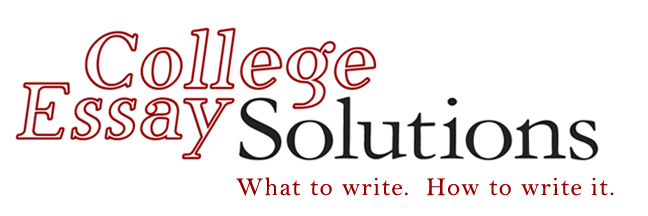The old show business expression goes, “Always leave them wanting more.” In writing your college application essay, the rule should be, “Always leave them wanting you.”
One way you can accomplish this is by ending your essay strongly and memorably. Here are six ways to end a college essay that will leave Admission Officers saying to themselves, “Yes, we must have this student in our freshman class.”
1. “The Buzz Lightyear”
Remember Buzz’ trademark line, “To infinity and beyond?” That’s where you will take the reader with this technique. Whatever subjects or themes you’ve been exploring in the essay, expand them into the future. If you’ve described your involvement in community service, use the final paragraph to discuss how you’ve been inspired to continue volunteering in college and beyond. If your essay was about your love of classical music, state your intentions to learn even more about it as you get older. In this way, you help establish yourself as a person who intends to be constantly learning and growing, which can only have a positive impact on your acceptance.
2. “The Echo”
This technique takes a phrase, a theme, an object, a person from the beginning of your essay and brings it back at the end. Using it will give your essay a feeling of unity and completion, leaving the Admissions Officer both satisfied and impressed. As an example, say you’ve started your essay with a bit of dialogue between you and your dad. Employing “The Echo,” you would then close the essay with another snippet of dialogue, ideally reflecting the major theme of the essay. If you began with the image of yourself boarding a camp bus for your first summer away from your parents, you might end it with the image of you boarding another bus, the one taking you off to college. However you use it, this technique is great way to show that you know how to bring a concept full circle.
3. “The Head of the Class”
Simple, direct, but always effective, this closing technique summarizes what you have learned through the events you’ve been describing in the essay. If you helped serve Thanksgiving dinners at a local homeless shelter, this is where you would state what you learned through the experience. To keep this approach from being too simplistic, try to offer examples – showing, not telling – of how these lessons have played out in your life.
4. “The What If”
It can be interesting to close your essay by wondering what would have happened to you – what kind of person you would have been, what values you might have had – had the events of the essay never occurred. This can illustrate your capacity for “big picture” thinking – seeing things from more than one perspective – as well as an appreciation for the benefits you’ve enjoyed from the way things actually occurred.
5. “The Ribbon and Bows”
Ending your essay by neatly tying up all the different themes, story lines and characters that you’ve introduced will give the reader a satisfying sense of completion, as well as a strong feeling of confidence in your writing skills. Leave no questions unanswered, complete all anecdotes, and most importantly, keep the tone upbeat.
6. “The Reveal”
With this technique, you disclose a significant piece of information, or a part of yourself, that you haven’t revealed in the body of the essay. In an essay about your inspiring first coach, it might go something like, “Coach Jane passed away last year and now, every time I get a new pair of tennis shoes, I write her initials on the inside. Maybe it’s my imagination, but I think it helps me play better.” This approach can help tie together earlier parts of the essay and also be very dramatic, which is always a positive.
In writing the college application essay, the concluding paragraph could be your last chance to make an impression on the reader, and positively influence your acceptance to the school. So use these techniques to assure that your final words are also your most memorable.
For more personal help with the college admissions essay, please contact Craig Heller directly at [email protected] or 818-340-1276.
